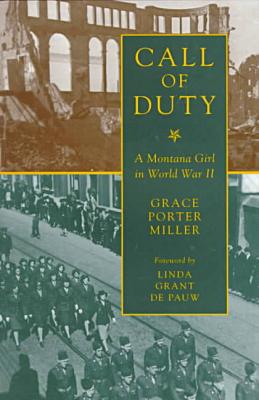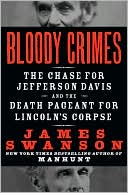Call of Duty: A Montana Girl in World War II
Search in google:
Montana-born Grace Porter was teaching school in Iowa when, in 1942, she turned twenty-one and became eligible for service in the U.S. armed forces. Patriotic and adventurous, she volunteered to join the Women's Army Auxiliary Corps, later the Women's Army Corps (WAC). A tough basic-training course in which she underwent most of the same hardships as the men, including long marches and latrine duty, strengthened her for future experiences. When the opportunity arose during the blitz and buzz-bomb days, Porter volunteered to go overseas. She and thirty-nine other WACs, along with thousands of male soldiers, crossed the North Atlantic on the Queen Mary in February 1944. Stationed in London, Porter served as a cryptographic technician during the campaigns of Normandy, Northern France, Rhineland, Central Europe, and Air Offensive Europe. Soon after the battle of the Bulge began, she was sent to Belgium, where she continued to work in cryptographics near - and once, accidently, across - the front lines of combat. As Grace Porter Miller demonstrates in Call of Duty, being in the WAC during World War II afforded her many thrilling experiences. She encountered fascinating people, traveled throughout the United States and Europe, and participated in a dramatic chapter of history. But the price she paid to serve her country was high. Like many other military women, she endured prejudice and harassment, witnessed the vast suffering of European refugees, withstood the constant threat of danger, and long after returning home suffered from serious health problems and nightmares. Despite their outstanding qualifications and record of service, the "girls" of World War II continued to be treated like "second-class soldiers" after the war. Now, fifty years later, one of their number urges us to recognize the sacrifices and contributions these unsung heroes made for our country. Kirkus Reviews A memoir by a WAC (Women's Army Corps) enlistee, combining high adventure with "lots of fun and travel," but paid for with some sad, painful experiences. Miller, then a patriotic and daring young teacher in Iowa, wanted to contribute directly to the effort of WWII (her father had served proudly in WWI) by joining the newly formed Women's Army that would help to relieve more young men for combat duty. She endured the long, exhausting hours of basic training, but some of the worst (and best) was yet to come. Miller was trained as a cryptographer and transcribd secret coded orders and intelligence for the US Eighth Air Force headquarters in London while the air offensive was raging in Europe. At this time, V1 and V2 buzz bombs were falling in Britain. After D-Day and the Battle of the Bulge erupted, she was transferred to the US Ninth Air Force in Charleroi, Belgium. Here she witnessed the endless suffering of European refugees who had lost everything, knew the hardships of freezing weather, poor food and shelter, and tremendous stress, as well as the potential danger of German counterattacks. She also went to see the mass graves at Dachau. The book relates sightseeing trips, too, including a visit to Paris after the German surrender. At the end Miller writes that there were so many heroes and there was so much pain, that the ghosts of more than half a century ago still haunt many today. Despite the vital contributions of the 300,000 WACs, Miller complains about feeling like a second-class member of the army, receiving little recognition for her service. The well-told story of a seldom reported facet of WWII. (illustrations, not seen)








